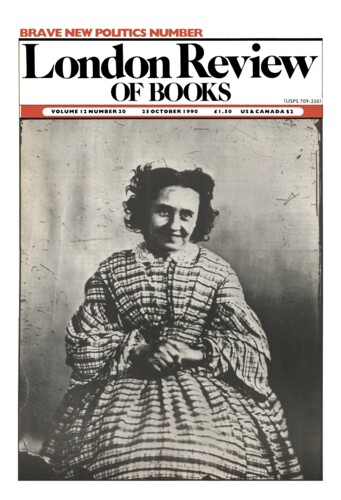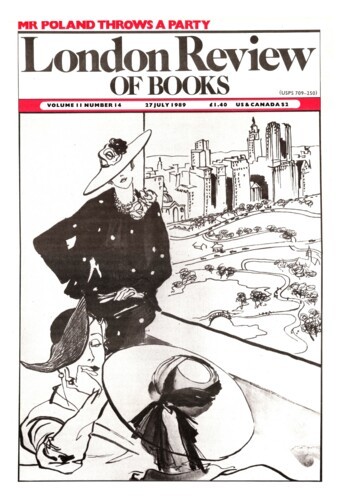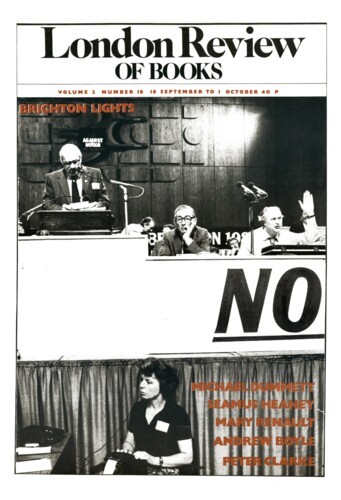Andrew Boyle
Andrew Boyle book The Climate of Treason called attention to the spying activities, in previous times, of Anthony Blunt. This has recently led to the resignation of Mr Blunt from the British Academy – a matter to which Sir Dennis Proctor refers in a very interesting letter in the present issue. Mr. Boyle is now writing a life of the Russian émigrée. Moura Budberg.
His Little Game
Andrew Boyle, 27 July 1989
Blake’s father was Albert Behar, whose Sephardic Jewish family cut him off with less than the proverbial shilling because of his marriage to a Dutch Christian woman called Catherine Beijdedvellen. Behar Senior then became a British citizen, having served in the French Foreign Legion and the British Army. On his death in 1936 – a bad period not only in England but throughout Europe – he left a widow and the young George in somewhat reduced circumstances. The change of name from Behar to Blake was understandable enough. However, there were further complications which did not help the boy, then rising twelve: one of the Behar sisters had married a banker, Henri Curiel, who offered to look after him on one condition: that he stay with what was left of the family in Egypt. In the end, however, he went back to Rotterdam.’
Official Secrecy
Andrew Boyle, 18 September 1980
Tudor times apart, together with the brief dictatorship of Cromwell, the British interest in secret intelligence has been a comparatively recent development. And, to be entirely objective, the British have not proved all that good at it. A certain uneasiness overtook the Foreign Office during and after the Franco-Prussian war of 1870 when it was discovered that Continental nations were building ‘large and influential intelligence organisations within their military establishments’, to quote F. H. Hinsley, the sole historian to have been allowed free access to the files of SIS. ‘Great Britain had to follow suit.’ It did so lamely and rather unsurely through newly-formed and somewhat despised intelligence branches inside the War Office and the Admiralty. Only service drop-outs, or, alternatively, rare intellectuals seemingly unfitted for military and naval command, tended to drift into these branches, such was the prevailing suspicion against any activity as ungentlemanly as spying. A Secret Service Bureau was set up in 1909 to act as a screen between the service departments and the handful of British agents on foreign soil. What the latter brought in was virtually non-existent, and there is a plaintive note in a War Office comment (admittedly bearing the date 1907) which said: ‘The only consolation … is that every foreign government implicitly believes that we already have a thoroughly organised and efficient European Secret Service.’
Pieces about Andrew Boyle in the LRB
What sort of traitors?
Neal Ascherson, 7 February 1980
The other day, I found myself in a taxi queue with Anthony Blunt. He looked frayed but fervently cheerful, much as if he had just been dug out of the ruins of his own bombed house. Never mind the...
Read anywhere with the London Review of Books app, available now from the App Store for Apple devices, Google Play for Android devices and Amazon for your Kindle Fire.
Sign up to our newsletter
For highlights from the latest issue, our archive and the blog, as well as news, events and exclusive promotions.



